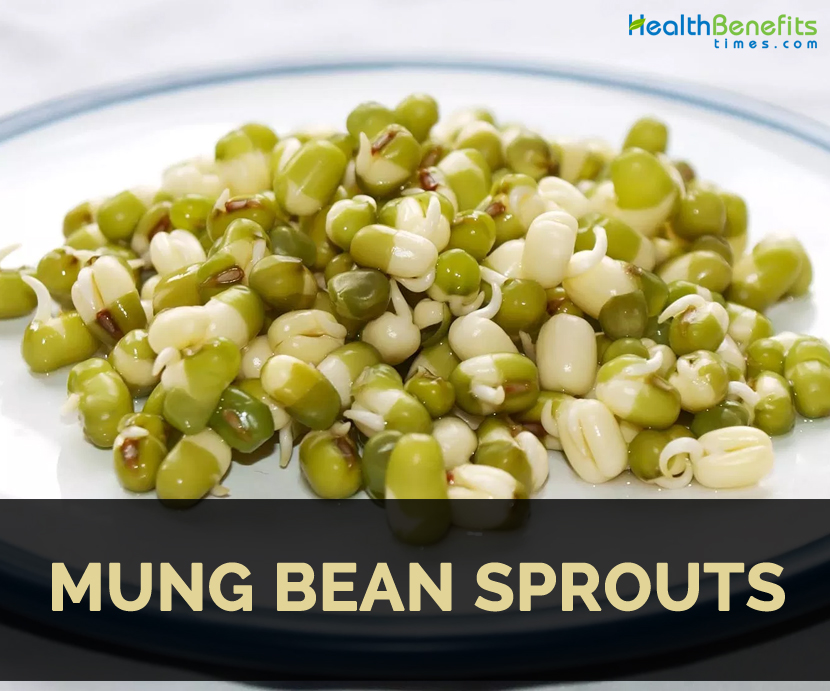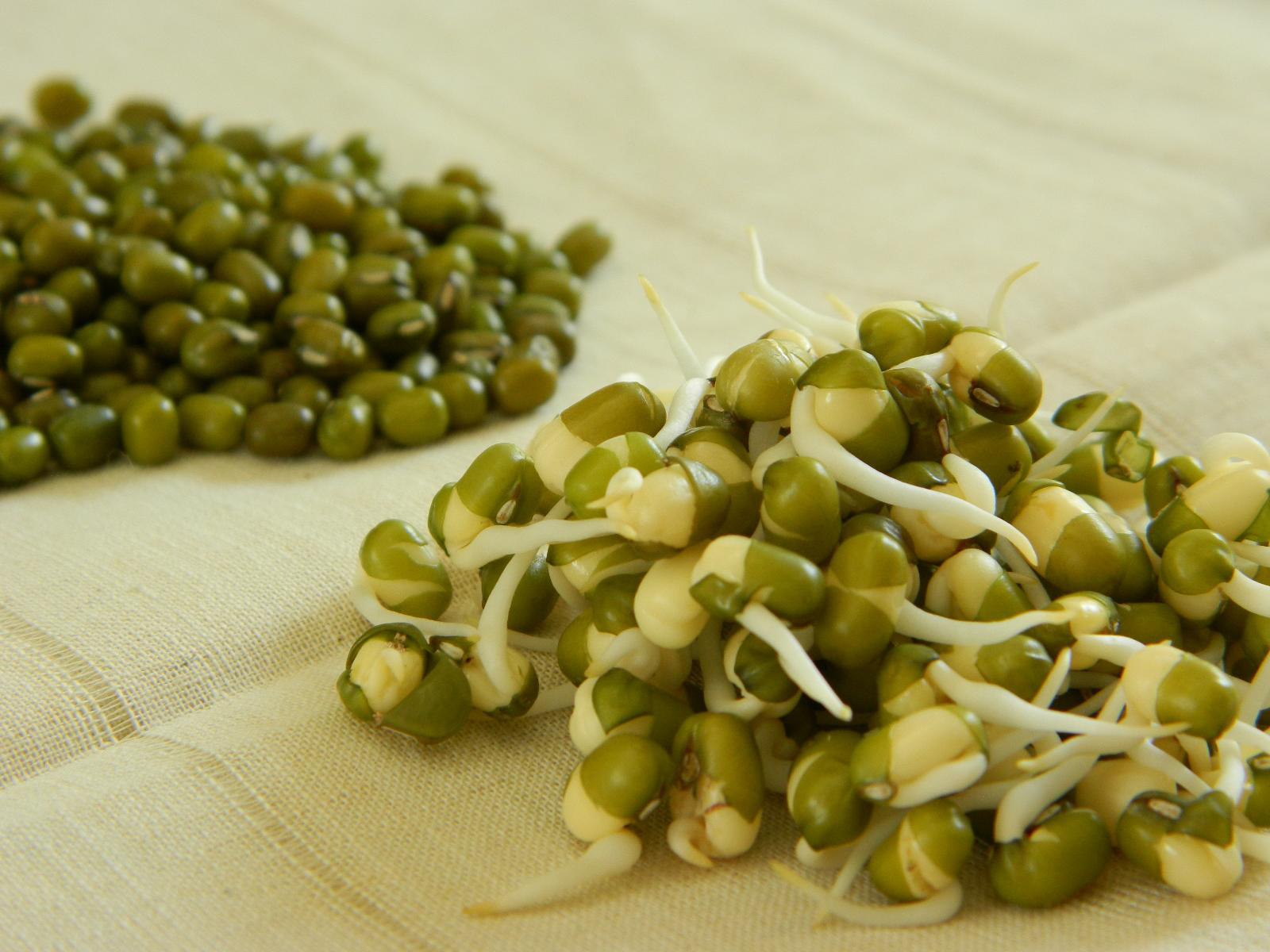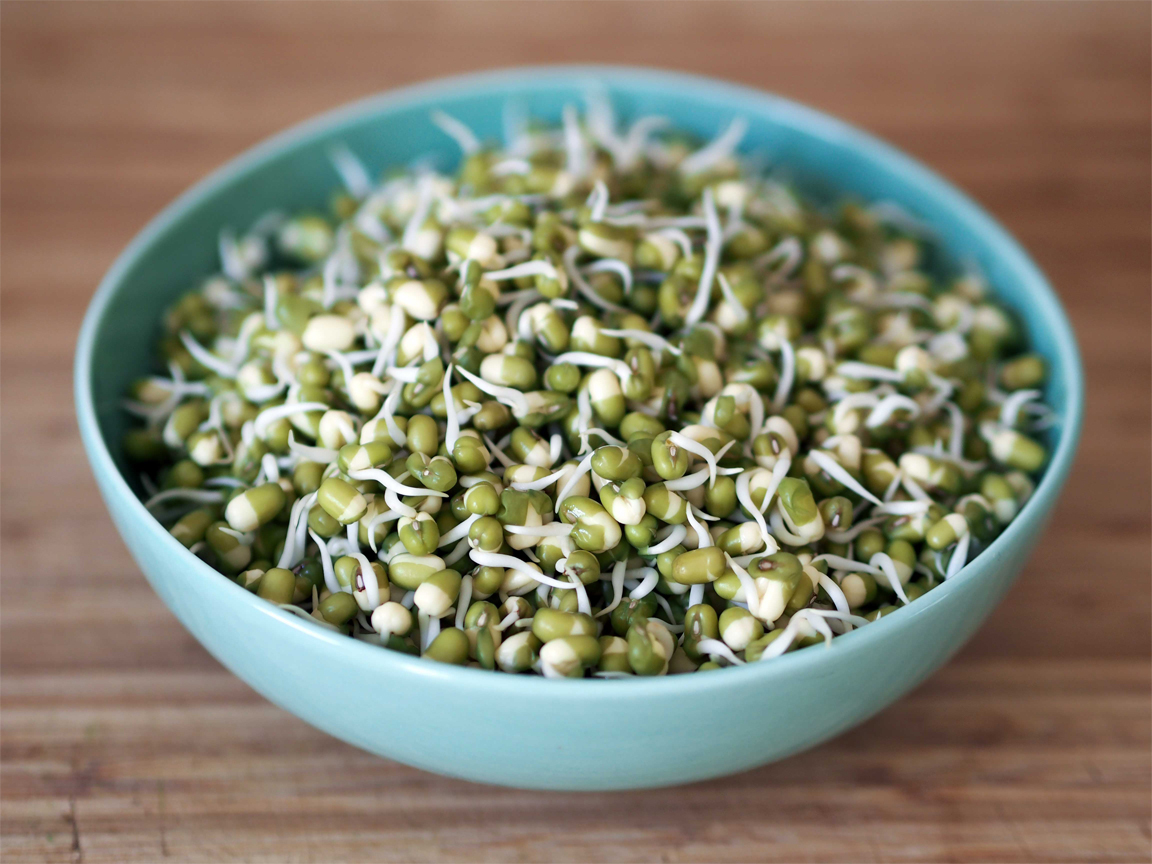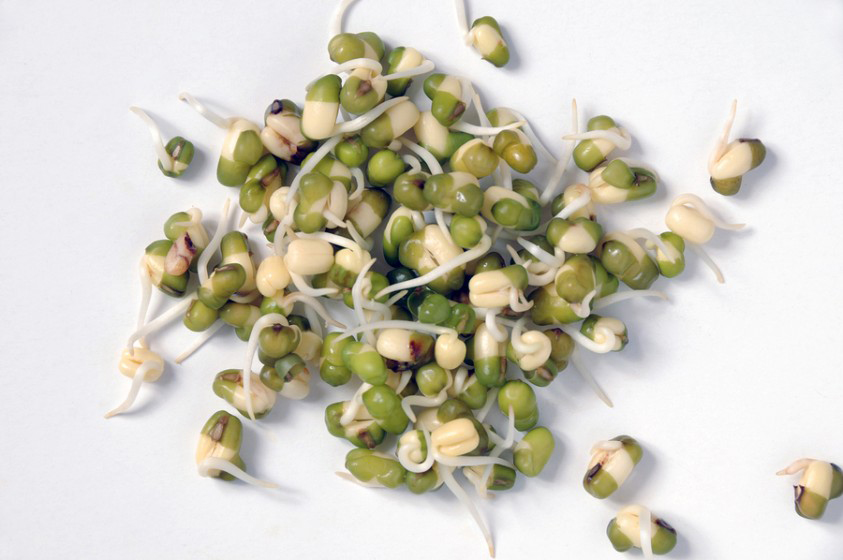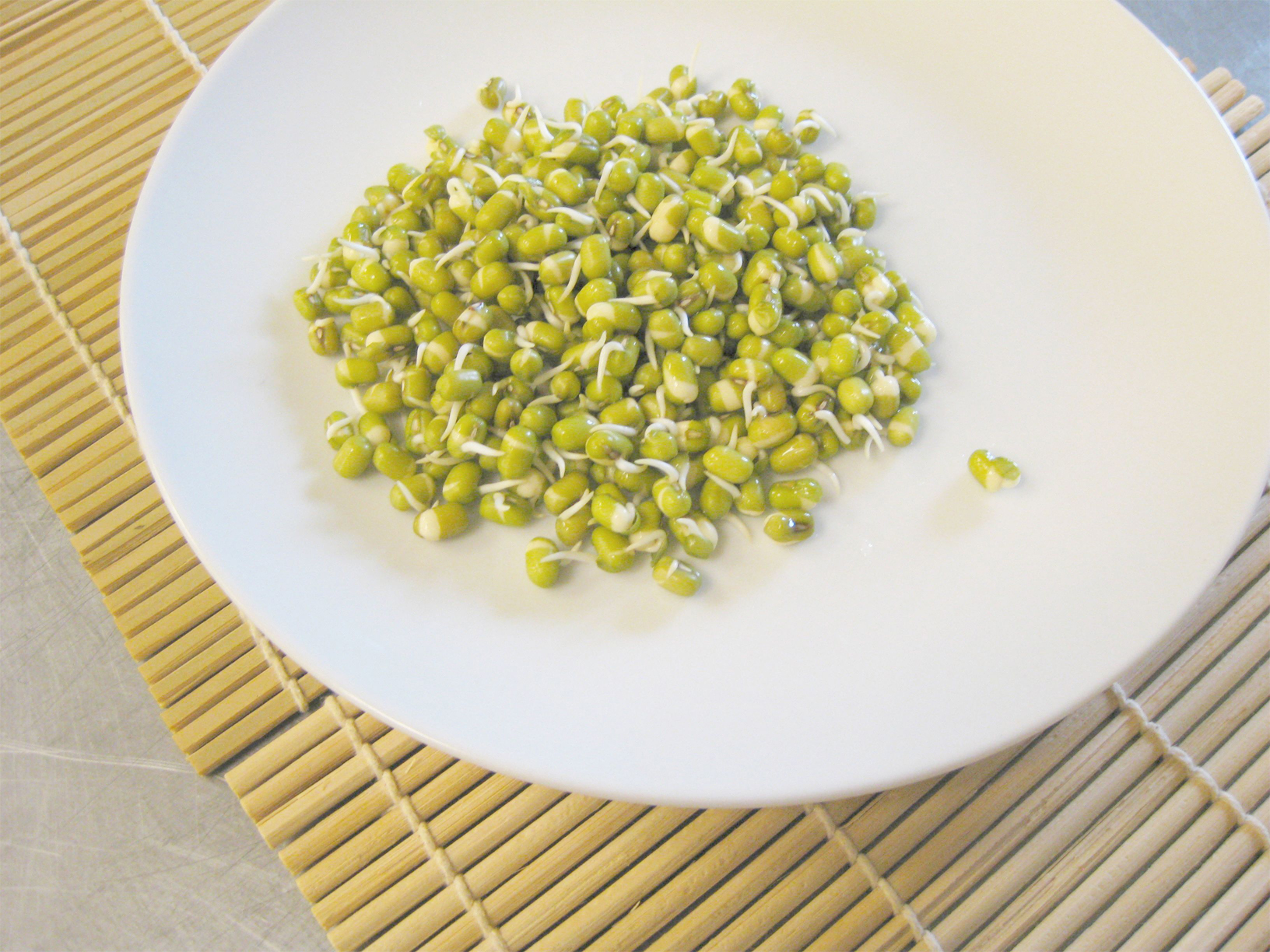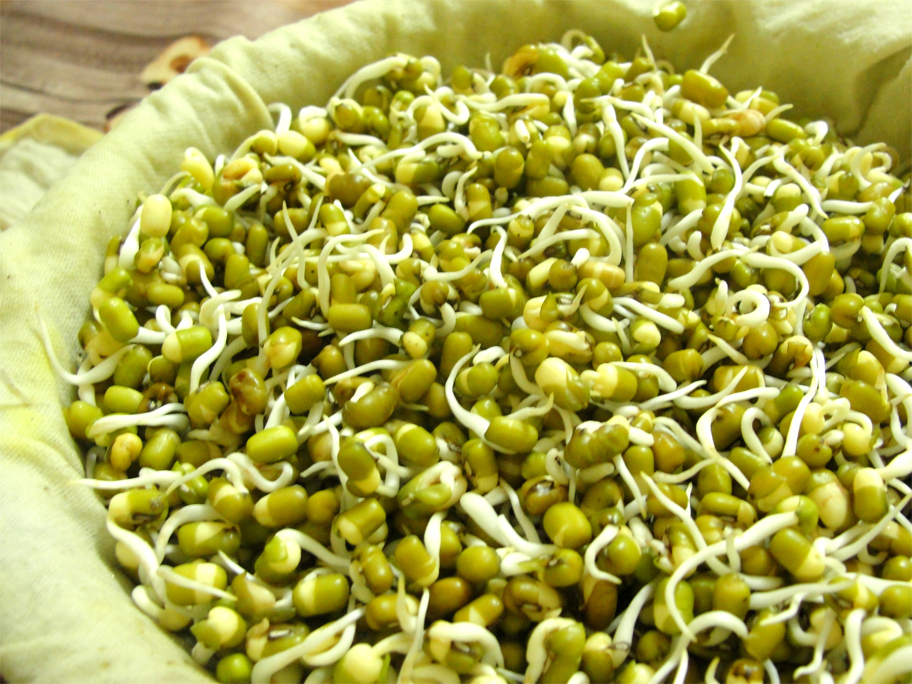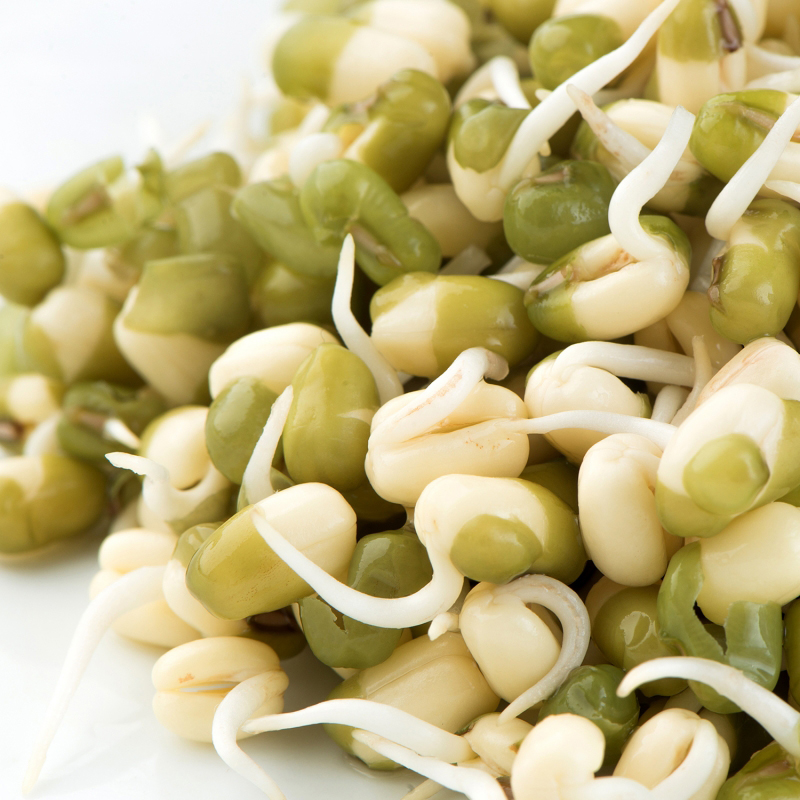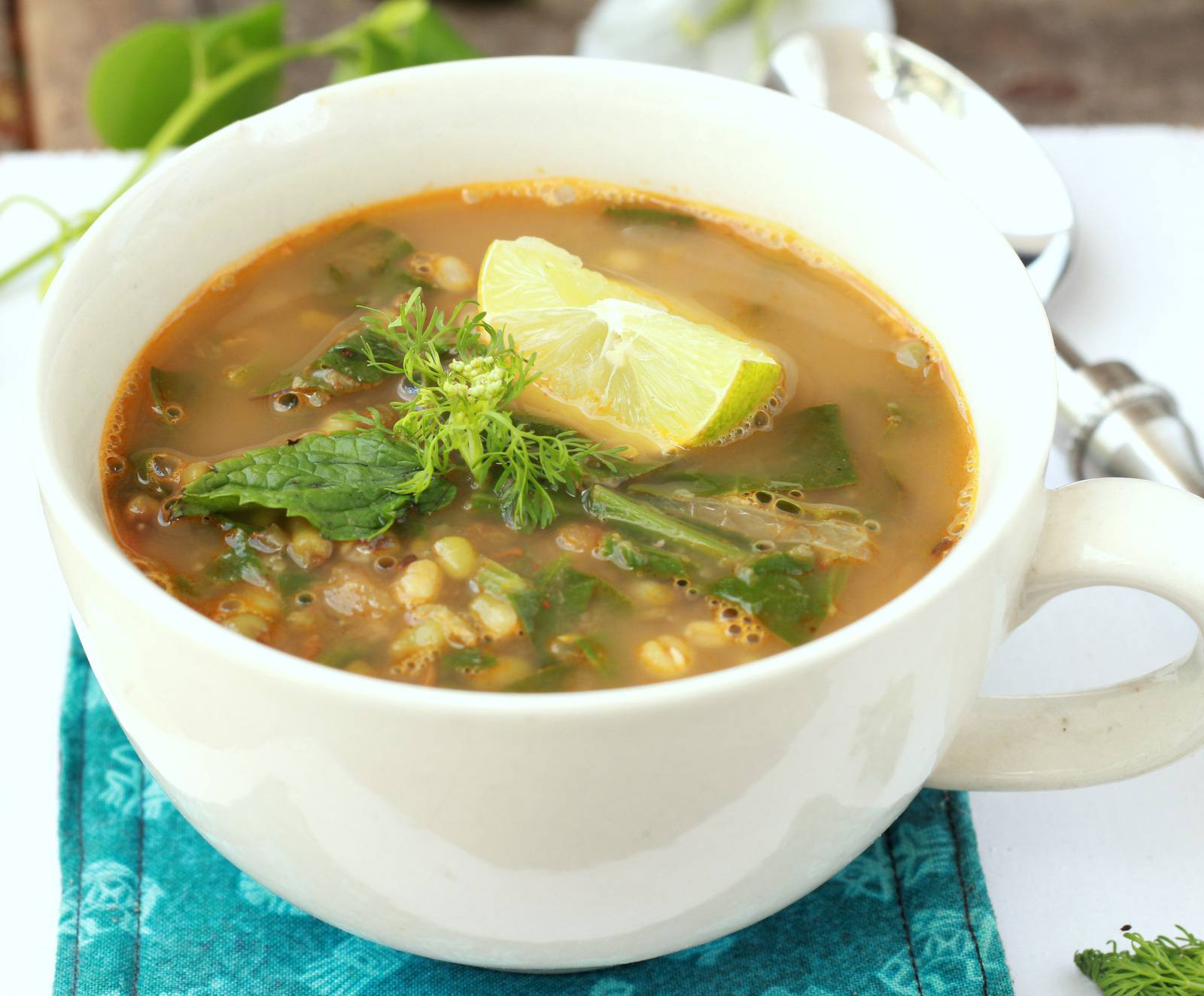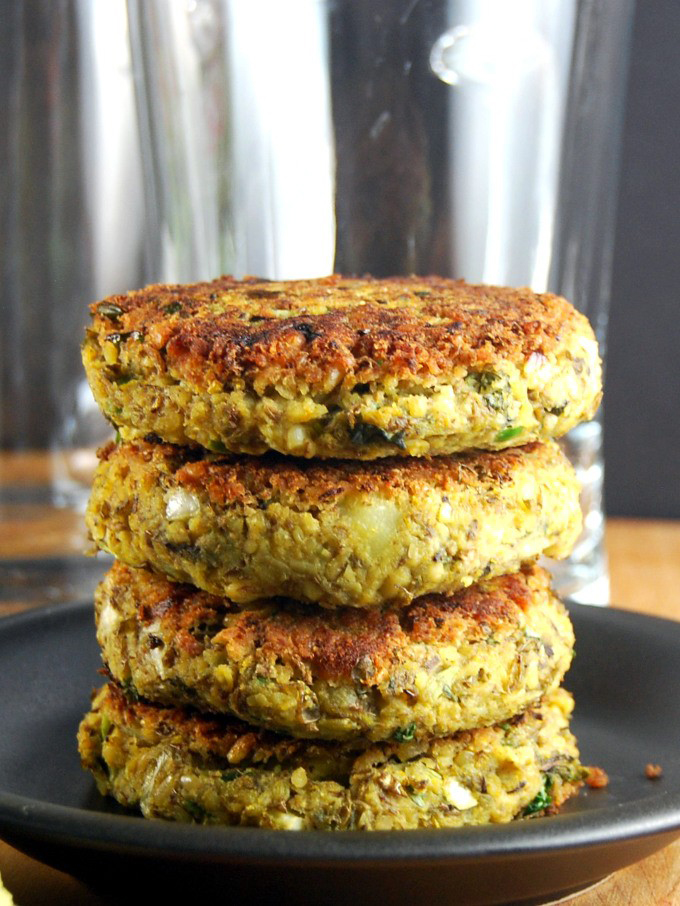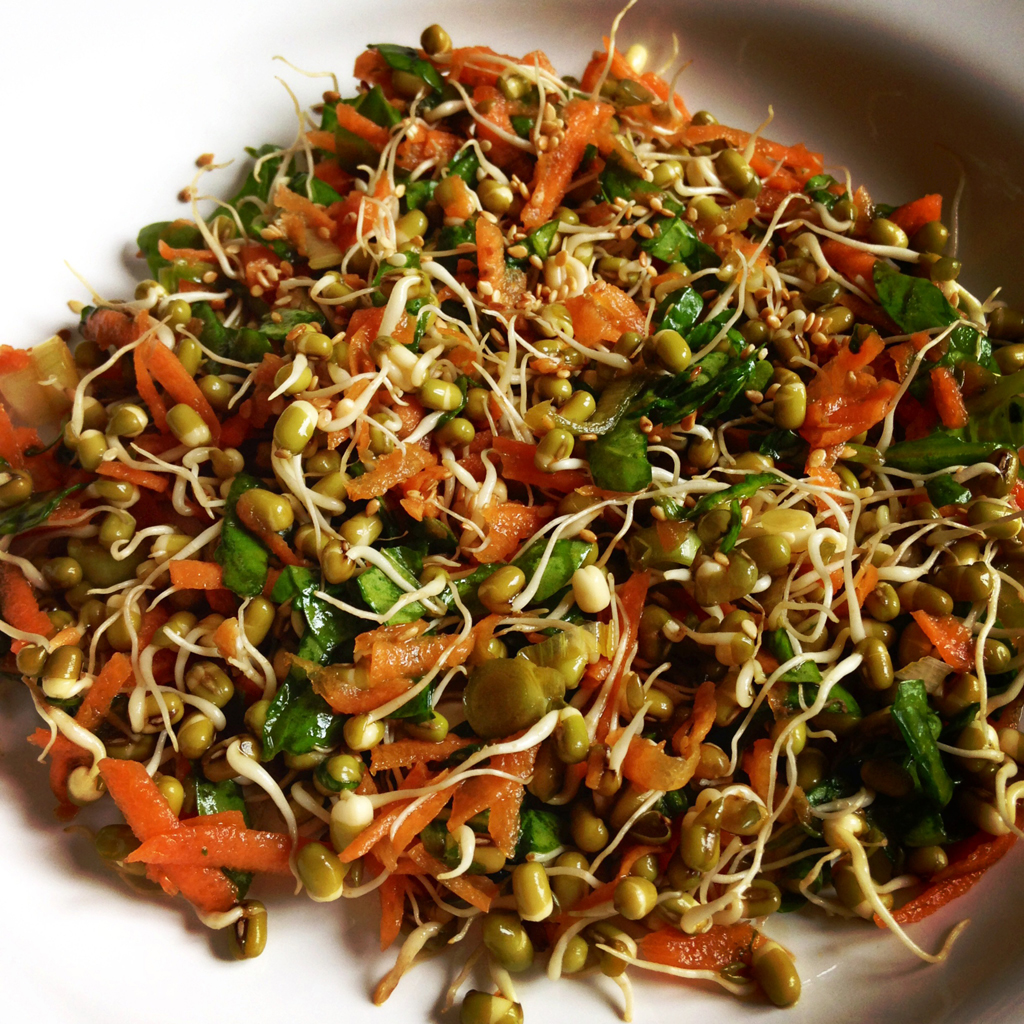Health Benefits of Mung Bean Sprouts
Sprouts of Mung bean are prepared from mung beans and are the type of bean used for making dal which is a traditional Indian curry dish. Mung bean sprouts have low content of calories with rich nutrients such as Vitamin K, copper, iron, Vitamin C and riboflavin. Raw mung bean sprouts are used as a topping in sandwiches or salads and ingredient in stir fries.
- Vitamin K
Mung bean sprouts are a great source of Vitamin K. The serving of one cup of raw sprouts grants 34 micrograms i.e. 28 percent of daily recommended intake for men and 37 percent for women. This nutrient is essential for blood clotting process. It also assists in regulating mineralization of bones and also to maintain density of bones. It inhibits the calcium buildup in blood vessels by lowering the chances of cardiovascular problems.
- Source of Vitamin C
Vitamin C acts as antioxidant that helps to protect cells from the damage caused by free radicals. Free radicals are the byproduct of biochemical process and response to cellular stress such as sunlight, cigarette smoke and lack of sleep. If not neutralized, free radicals attach to healthy cells by leading inflammation, damage resulting in chronic problems. Vitamin C assists in production of collagen and support or strengthens skin, organs and cartilage. One cup of mung beans (raw) offers 14 milligrams of Vitamin C. The recommended amount of Vitamin C for men is 90 milligrams and 75 milligrams for women daily. Smokers should add more 35 milligrams to this.
- Presence of iron
Our body retains and reuses 90 percent of iron but still one should intake adequate amount of iron in order to recover the amount that has been excreted regularly. Men should get 8 milligrams of iron and for women 18 milligrams regularly. Iron is essential to transport oxygen though the blood and support immune system by facilitating cell growth which regulates immune response and intervenes infected cells. A cup of raw mung bean sprouts provides 12 percent of recommended daily intake for men and 5 percent for women.
- Adequate folate
Folate is required for DNA creation, producing or to maintain new cells and also for healthy red blood cells. Due to this, it is essential for all in order to support growth from conception through adolescence. Women should have sufficient folate to prevent birth defects of brain and spinal cord which occurs in first 28 days of pregnancy. Serving of one cup of raw mung beans provides about 16 percent of daily recommended intake.
- Prevent osteoporosis
One cup of cooked Mung bean sprouts provides 28 micrograms of Vitamin K which serves 23 percent of daily recommended value for man and 31 percent of woman. This sprouts has Vitamin K which assist to build stronger bones. The deficiency of vitamin causes to become more prone to bone fractures and osteoporosis. Besides this, these sprouts fulfill 60 percent of daily recommended intake of Vitamin C for woman and 50 percent of man. Vitamin C is essential to maintain and repair bones.
- Supports neurological function
A body requires various nutrients that support neurological health. Copper assist proper functions of nerve cells. Every cup of raw mung bean sprouts offers 171 micrograms of copper which means 19 percent of daily requirement for adults. Manganese and iron has vital role in nervous system. Insufficient amount of these makes one prone to seizures and neurological disorders such as attention deficit hyperactivity disorder.
- Prevent cataracts
Study shows that consumption of high Vitamin B rich foods helps to lower the chances of developing cataracts. These sprouts are a great source of vitamins such as thiamine, riboflavin and niacin. Additionally, consumption of vitamin B6 and Vitamin C lowers the chances of age associated macular degeneration. Mung bean sprouts have sufficient amount of these vitamins.
- Lowers obesity
Study shows that high fiber beans increases satiety hormone. The short term satiety effect lowers food intake and weight loss. Study conducted in 173 obese men and women who were fed high fiber and bean rich diet showed that 1 ½ cups of beans each day for 16 weeks resulted lower body weight by over 9 pounds on average.
Chinese Kung Pao Almonds and Cashews with Sprouted Quinoa
This is essentially a mock stir-fry, a delicious, spicy dish seasoned with a homemade version of traditional hoisin sauce. It’s best served with a fluffy grain like quinoa, steamed vegetables, and a sprinkling of sliced scallions.
Ingredients | Serves 4
- ½ cup almonds
- ½ cup cashews
- ¼ cup nama shoyu
- ¼ cup sesame oil
- 4 tablespoons maple syrup
- 1 tablespoon chopped fresh hot peppers (cayenne, jalapeño, chili)
- ½ clove garlic
- 1 tablespoon grated ginger
- 1 cup mung bean sprouts
- 1 cup additional chopped veggies (asparagus tips, chopped green or red bell peppers, celery, and cherry tomatoes)
- 2 cups red quinoa, sprouted
Directions:
- Soak the almonds and cashews for 8–12 hours in 4 cups of water. Drain and rinse.
- Using a blender, prepare the hoisin sauce by blending together nama shoyu, sesame oil, maple syrup, hot peppers, garlic, and ginger.
- Using a food processor with an S blade, pulse the almonds and cashews until chunky.
- In a bowl, stir together the almond mixture, mung bean sprouts, assorted veggies, and prepared sauce.
- Divide the quinoa between four bowls and top with the almond mixture.
Chipotle Sprout Wrap
Ingredients | Serves 4
- 1 cup cashews
- 2 tablespoons olive oil
- 1 tablespoon fresh chipotle pepper, or 1 teaspoon chipotle powder
- 2 tablespoons lemon juice
- Water for blending
- 4 collard leaves, stemmed
- ½ cup mung bean sprouts
- ½ cup red quinoa, sprouted
- 1 cup red bell pepper, sliced into strips
- ½ cup scallions, chopped
- 2 tablespoons minced fresh cilantro, for garnish
Directions:
- Blend the cashews, olive oil, chipotle, and lemon juice together. Slowly add a little water until it blends into a creamy sauce.
- To assemble the wrap, lay the collard leaves flat. Spread a layer of cashew cream onto the leaves. Place some sprouts, quinoa, scallions, red bell pepper, and cilantro on one end of the leaves and roll tightly.
Oriental Spring Rolls
This is a great recipe that can be made in less than 30 minutes. These wraps capture the flavor of spring rolls found in Asian restaurants. The wraps can be dipped in nama shoyu, soy sauce, or your favorite salad dressing.
Ingredients | Serves 4
- 4 large romaine lettuce leaves
- ¼ cup mint leaves
- ¼ cup cilantro leaves
- ½ cup mung bean sprouts
- ½ cup red lentils, sprouted
- ¼ cup slivered almonds
- ½ cup carrot, julienned
- ½ cup sliced avocado or julienned radishes
Directions:
- Lay the romaine lettuce leaves flat. Place a layer of mint and cilantro onto one side. Top with the mung beans, sprouted lentils, almonds, carrot, and avocado.
- Roll up the wraps tightly. Place a toothpick through the middle to hold it together. Serve with sauce.
Precautions
- Sprouts carry bacteria so raw sprout could be avoided by pregnant women, children, elders and people with weak immune system.
- It should be avoided by people with diarrhea and cold symptoms such as cold hands and feet.
- Cook it before serving as it may cause food poisoning.
How to Eat
- Add Mung bean sprouts to soups, salads and raw or cooked meal.
- Add it to tacos, wraps and sushi rolls.
- Cook it with turmeric, curry and other Indian spices.
- Prepare mung bean as tempeh which could be sliced, stir-fried, grilled and served in miso soup.
- These sprouts could be stir-fried or microwaved.
- Use it as an ingredient in spring rolls.
- It is used raw in sandwiches.
References:
https://en.wikipedia.org/wiki/Mung_bean_sprout
https://www.superfoodevolution.com/mung-bean-sprouts.html
http://healthyeating.sfgate.com/benefits-mung-bean-sprouts-5176.html
https://healthyliving.azcentral.com/benefits-mung-bean-sprouts-16974.html
Comments
| Mung Bean sprouts Quick Facts | |
|---|---|
| Name: | Mung Bean sprouts |
| Calories | 26 Kcal./cup |
| Major nutrients | Vitamin K (23.42%) Copper (16.78%) Vitamin C (15.67%) Iron (10.13%) Vitamin B2 (9.69%) |
| Health benefits | Vitamin K, Source of Vitamin C, Presence of iron, Adequate folate, Prevent osteoporosis |
| Name | Mung Bean sprouts |
|---|---|
| Major Nutritions | Vitamin K (phylloquinone) 28.1 µg (23.42%) Copper, Cu 0.151 mg (16.78%) Vitamin C (Ascorbic acid) 14.1 mg (15.67%) Iron, Fe 0.81 mg (10.13%) Vitamin B2 (Riboflavin) 0.126 mg (9.69%) Vitamin B9 (Folate) 36 µg (9.00%) Tryptophan 0.035 g (7.95%) Manganese, Mn 0.174 mg (7.57%) Isoleucine 0.122 g (7.30%) Vitamin B3 (Niacin) 1.013 mg (6.33%) |
| Health Benefits |
|
| Calories in 1 cup (124 g) | 26 Kcal. |


